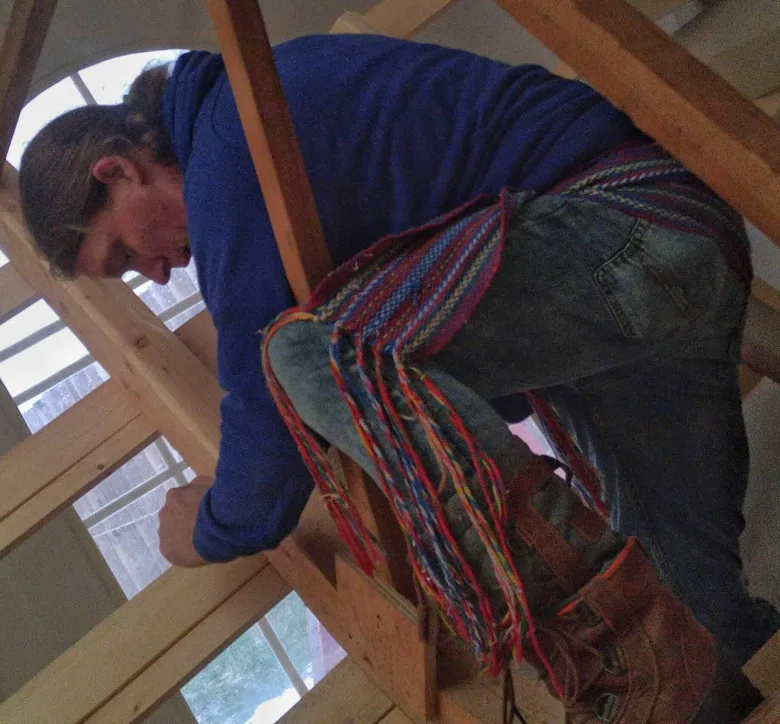Metis carver builds York boat at Fort Langley National Historic Site

When you think about Indigenous art, you might think of welcome poles, plaques or masks.
But how about York boats?
York boats were the traditional watercraft used by Metis and voyageurs for the Hudson’s Bay during the 1700s for the fur trade in Canada.
York boats were eventually displaced by the paddlewheeler, then all but disappeared.
Today, Metis carver Pat Calihou is building a York boat from scratch at the Fort Langley National Historic Site. For Calihou, the journey building the boat is about more than resurrecting his ancestors’ watercraft. The journey is about reviving his family’s forgotten culture while assembling each piece.
“For me, it’s to commemorate [and] memorialize my family. It’s part of my heritage as a Metis,” Calihou said. “We lost a couple of generations of it. So, it’s really important to me to remember.”
Passion for York boats
On a soggy Tuesday morning at the historic site in Langley, Calihou and colleague Sean Anton are inside a white tent working inside of the boat’s 13-metres long and three-metres wide wooden skeleton.
Calihou was contracted by Parks Canada to replace a 30-year-old bateau on site, which was rotted and not used anymore. The project started in December and is expected to be finished in March.
Parks Canada’s Brigette Weironski recalls being struck by Calihou’s passion for York boats and his Metis heritage.
“That we’re able to help him realize getting back to his Metis roots and honouring his ancestors in that way is truly special,” she said. “It’s not just about replacing the bateau. It’s the story that goes with it and the history. It’s the legacy.”
Calihou used a first-growth wooden roof beam from an old house in Vancouver for the boat’s keel because he couldn’t get one that was properly sized. And the nails holding the boat together are specially made by a blacksmith onsite.
A sense of identity
There’s something else special about the boat — a family connection linking Calihou to the boat and to his heritage.
Calihou says he knew his family came to B.C. from Alberta in the 1930s, but that’s all he knew. But a book titled Education for Métis Reconciliation laid out his family history as Metis voyageurs, starting with his great-great-great grandfather, Louis Calihou, in the 1700s. His great-great grandfather, Michel Calihou, later piloted York boats for 30 years in Edmonton.
“I have a picture of one coming down a rapid and it looks like most of it’s underwater,” he said. “So, it’s loaded full of fur, and I imagine the people in the boat holding on and going, “oh, here we go.”
Awareness that his family is Metis instilled a sense of identity in Calihou that had, until recently, been vacant, he says. He learned about Metis culture, which found expression through his carving.
Today, he makes Red River carts, voyageur paddles and York boats. He teaches his children about their culture. And he also wears a red woven Metis sash daily.
Calihou says knowing his family lost its culture for a couple of generations gives added importance to building the York boat.
“It hit me like a hammer, because my family were becoming the forgotten ones,” he said. “So, this was my way to ensure that we’re not going to be forgotten.”
Once completed, the boat won’t touch water. It will instead be part of a permanent bateau exhibit on site. A Metis celebration is planned for the unveiling.





